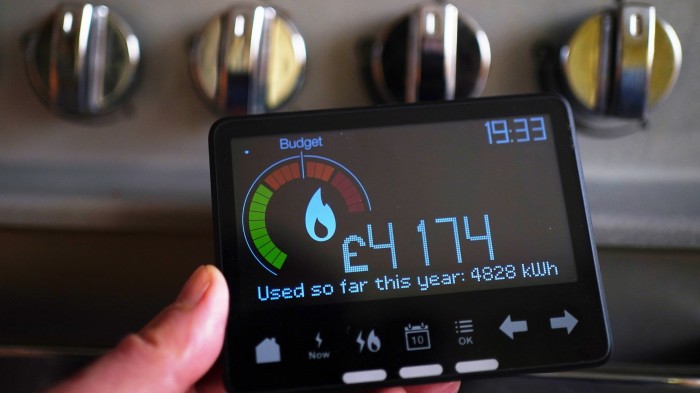Stay informed with free updates
Simply sign up to the UK energy myFT Digest — delivered directly to your inbox.
Almost one in four British households are late paying their energy bills, according to new figures that shows how families are struggling to pay despite global prices falling over the past two years.
Some 24 per cent of households are currently past their energy bill payment due date, figures compiled by consultancy Baringa show.
This has risen from 18 per cent in December 2024, though is lower than the rate of 29 per cent who were behind in May 2022, after wholesale prices surged in the wake of Russia’s full-scale invasion of Ukraine.
It found that the average debtor who does not have a repayment plan in place owes £1,700. Some 71 per cent of domestic energy debt is from households who do not have repayment plans, while a total of £2.3bn of energy debt is now more than a year overdue, it added.
Baringa’s analysis is based on its access to debt books of seven major energy suppliers covering about half of British households. Partner James Cooper said the debt levels were creating a “downward spiral” for the industry.
“It’s critical that more urgency and focus is placed on finding solutions to the challenge,” he said. “We need a better balance that both cures the debt challenge and helps prevent further debt build up for households.”
Baringa analysis contrasts with regulator Ofgem’s approach towards the way it calculates energy debt.
Ofgem said it only classed energy debt as payments that were at least 90 days late, rather than a single missed payment. Under its approach, only 6.5 per cent of households were in debt, Ofgem said.
Baringa argued that its approach reflected a more accurate picture of household debt.
The figures are likely to raise alarm about the health of the market several years after the surge in wholesale energy prices, starting in late 2021, that led to the collapse of several suppliers and saw the government eventually step in to offer blanket financial support for households.
Although government support was gradually unwound as prices eased, typical household energy bills are still hundreds of pounds higher than before the energy crisis.
Energy suppliers have also signed up to tougher rules that dictate when they are allowed to forcibly install pre-payment meters, after a temporary ban imposed following concerns about the targeting of vulnerable people.
Andrew Ward, chief executive of Scottish Power’s household energy supply business, added: “We’re approaching a winter with debts increasing every day and no solution.”
Ofgem allows companies to recoup a level of bad debts from all customers’ energy bills. Baringa’s analysis found average customers are paying £64.67 in their annual energy bills to cover the costs of bad debt, compared with roughly £40 in the summer of 2022.
Under their code of practice signed in 2023, the industry must not force pre-payment meters on homes with children under two years of age or people with severe health issues.
Philippe Commaret, UK managing director for EDF, said the policies were “absolutely fair and protections should remain for those who are vulnerable but do not want to pay”.
But he warned it was “creating loopholes for those who are not vulnerable but do not want to pay, which is increasing everyone else’s bills including for those who really are vulnerable.”
Ofgem said: “We’ve introduced tougher rules to make sure energy companies do more to spot the signs when a customer may be struggling and step in quickly to offer support, including offering affordable payment plans or providing emergency credit to reduce the risk of self-disconnection.”
It added: “We’re working with government and industry on plans to introduce a new debt relief scheme that could serve as a lifeline for millions of households struggling with unmanageable debts and to reform the rules around how people in debt are supported.”





1 Comment
lithzk